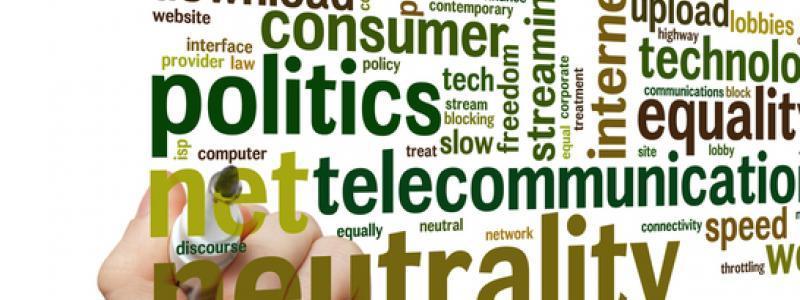FCC Bares Proposal to Overhaul 2015 Net Neutrality Rules

Ajit Pai, the current chairman of the Federal Communications Commission (FCC), is introducing a new proposal that would effectively erase the net neutrality rules implemented in 2015 by the FCC under former President Barack Obama’s administration. About a couple of years ago, those regulations were formulated to help make sure that all traffic in the Internet will be treated equally, and essentially stop broadband and mobile service providers from slowing down web content (or blocking them altogether).
Pai’s proposal will also render moot the legal basis upon which the FCC regulates web service providers. What the chairman is proposing instead is that broadband companies will now be required to be transparent with regards to how they manage and deliver their respective network services to consumers and enterprises, as opposed to having the FCC micro-manage the information superhighway.
It bears noting that this new proposal will still have to go through a vote before implementation. The FCC is expected to do just that three weeks from now on December 14th.
The basic idea of net neutrality has always been to ensure equality in the world wide web, especially with regards to the treatment of any content published in the Internet. This includes news articles, blog posts, social media updates, video clips, films, music, games, and essentially everything. Because every content is supposed to get equal treatment, net neutrality prevents service providers like AT&T from favoring its own content (like those it offers through its DirecTV brand) over a competitor’s. The 2015 net neutrality regulations also make sure that broadband companies are kept from charging smaller companies to deliver their own video streaming offerings to consumers more quickly.
Back in 2015, the FCC had a different chairman in the person of Tom Wheeler, and through his leadership, the net neutrality rules were adopted two years ago while Obama was President. But now with Donald Trump sitting in the Oval Office, a new chairman has been appointed, Pai. It goes without saying that the current chairman has different things in mind when it comes to net neutrality. And while he states that he is in support of net neutrality, he has trouble accepting the public utility re-classification of broadband (referred to as Title II) in the 2015 regulations.
While broadband companies have praised the proposal, consumer groups and net neutrality advocates are now lamenting a possible future in which every Internet user is left to the whims of service providers, who will now be able to dictate which content should be watched, and what prices to pay.
Related Blog Articles
- So What Are The Big Four Carriers Offering This Black Friday?
- AT&T Extends Deadline of Time Warner Acquisition to April
- Report: Pace of Phablet Growth to Hit 18.1 Percent by 2021
- Xiaomi Posts Most Improved Growth in Q3 2017
- AT&T Teams Up with Amazon Web Services to Announce the LTE-M Button
- Tello is Dropping Prices Once Again
- Qualcomm: Snapdragon 845 Coming Next Year
- By 2018, People Will Spend $110 Billion Buying from App Stores
- Riot Micro: Building a Cheaper, Low-Power Chip for IoT Networks
- Featured MVNO: Best Cellular
Related Blog Posts
- Report: AT&T facilities are used for NSA surveillance program
- Tips for achieving a smartphone detox this summer (or at least for a few days)
- Instagram hits 1 billion users; launches new IGTV video uploading service
- Facebook introduces game shows platform, with live interactive vids
- California Democrats combine two separate net neutrality bills


 Menu
Menu